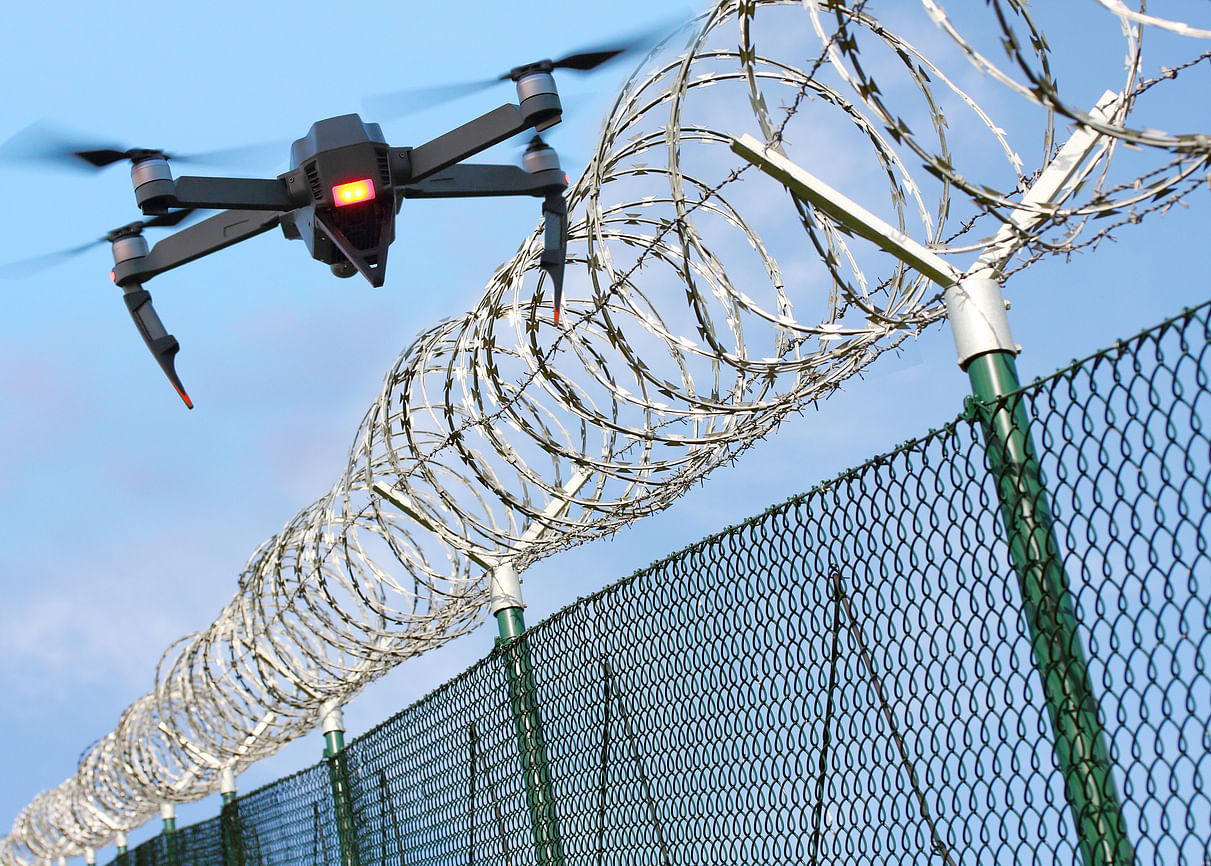
Indian Oil Corp (IOC) is deploying drones to monitor its vast network of pipelines across the country as it doubles down on the use of technology to thwart attempts to steal fuel, helping not just save the commodity but also avoid accidents.
The country's top oil company already uses a combination of sophisticated technology and patrolling to detect any leakage from the pipeline network spanning over 15,000-kilometers. And now, it is adding drones to monitor the vast network, officials said.
Use of technology helped throttle 34 attempts to pilfer fuel and arrest 53 persons in the 2020-21 fiscal year, they said adding the latest incident was in Sonipat, Haryana on August 17.
IOC recently started drone monitoring of the 120-km long Delhi-Panipat section of the Mathura-Jalandhar pipeline. The live feed of the drones was monitored to detect leakages and attempts to pilfer fuel, they said.
Pipelines are the lifeline of an economy and any attempt to disrupt flows through the underground energy highways has widespread ramifications.
Pilferage from these pipelines, which carry highly inflammable petroleum products such as petrol and diesel at high pressure, can cause serious accidents that threaten lives and damage property besides interrupting energy supplies.
"Any pilferage attempt on these pipelines is a grave offence under Sections 15 and 16 of The Petroleum and Mineral Pipelines (Acquisition of Right of Way) Act 1961. Such criminal acts are non-bailable offences, and intruders are punishable with rigorous imprisonment for ten years or more," an official explained.
IOC has deployed a SCADA-based system to closely monitor the flow in the pipeline network and is using a leak detection system (LDS) to identify tentative vulnerable points, officials said.
The firm, which operates over 15,000-km of cross-country pipeline network that carries fuel like petrol and diesel from oil refineries to consumption centres, has deployed a robust round-the-clock monitoring system to track pipeline pilferage or any other such disruptive attempts on its pipeline network.
The firm closely monitors the pipeline flow, pressure parameters, and trends through an Instrumentation and Supervisory Control and Data Acquisition (SCADA) system. In addition to this, an LDS ensures 24X7 analysis to identify tentative vulnerable points, officials said.
Also, a comprehensive system of physical inspection of the entire network on foot by line patrolmen and DGR guards are also in place.
To further enhance the effectiveness of this constant vigil, the movement of line patrolmen and DGR guards are monitored through Global Positioning System (GPS) enabled devices.
The existing Right of Way (ROW) of the pipelines is also mapped through Geo-Fencing.
"Such GPS-tracked physical inspections also help spot and identify abnormalities like loose soil, the smell of leaked petroleum products or suspicious vehicle tyre marks in the vicinity of the pipelines," an official said.
IOC teams, along with local Police, also undertake periodic joint patrolling of vulnerable locations to track any unauthorised activities.
To further boost the security of its pipelines, IndianOil has undertaken focused digital initiatives like the optical fibre based Pipeline Intrusion Detection and Warning System (PIDWS).
This system is presently under implementation in 5,474 KM of its pipeline length.
The system is already functional for 997 KM of the pipeline network, and the remaining will be commissioned by 2022-23.
Officials said IOC is also exploring several other innovative security protocols to enhance pipeline security further, like the 'Negative Pressure Wave Type Leak/Pilferage Detection System' and monitoring the vast network through Drones.
Based on previous experience fighting this menace, IndianOil has also identified the most vulnerable sections of Pipelines to ensure better surveillance, they said adding such locations are monitored through CCTVs, and pipeline routes are shared with local administration for better supervision.
Moreover, to ensure swift recourse, the issues related to pilferage are taken up at various levels of the State Government and Police Departments.
"IOC's concerted efforts in fighting the menace of oil pipeline pilferage have resulted in swift tracking of miscreants indulging in such criminal activities across the country. During 2020-21, 53 arrests have been made against 34 pipeline pilferage attempts across the country," an official said.
The surveillance system is further strengthened by garnering local support in enhancing the efficacy of the overall process.
While the population along the pipeline route is being sensitised, reward schemes for informants have also been put in place to incentivise local monitoring, officials said adding the identity of the citizens informing such illegal intrusion will be kept confidential.